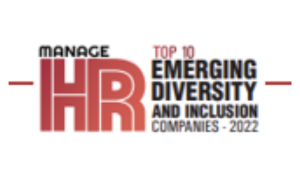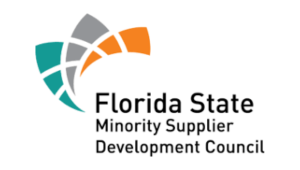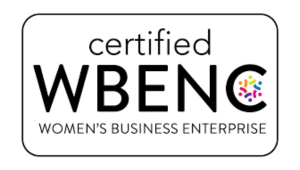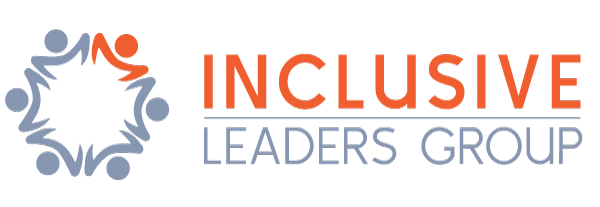When I speak with HR executives at organizations without a Diversity, Equity, and Inclusion (DEI) strategic plan, I often hear them ask, “Why should I care about workplace DEI when the government has already taken care of it with the Equal Employment Opportunity Act?” or “Why do we need DEI when we have affirmative action?”
I acknowledge and applaud their Equal Opportunity and Affirmative Action compliance initiatives as absolutely essential, but woefully insufficient in today’s business and talent marketplace.
The Equal Employment Opportunity Act of 1972 (EEO) provides freedom from employment discrimination on the basis of race, color, religion, sex (including pregnancy, gender identity, and sexual orientation), national origin, age (40 or older), disability, or genetic information. Equal employment opportunity (EEO) also protects employees from retaliation after having voiced, filed, or taken part in a discrimination complaint or lawsuit. The U.S. Equal Employment Opportunity Commission is responsible for enforcing these laws. The principle behind EEO is that everyone should have the same access to opportunities in the workplace:
- Eliminates discrimination in human resource policies and practices
- Provides equal access and opportunity – no one is excluded from participation
- EEO is legally mandated for all companies to qualify as a federal contractor
Affirmative Action (AA) – Title VII of the Civil Rights Act of 1964 has a broader reach in that it encompasses policies that support members of disadvantaged groups that have suffered historical discrimination through education, employment, or housing. Key to AA is that it is deemed a social and moral obligation to amend historical wrongs and improve opportunities for historically excluded or underrepresented groups in the United States. Many organizations have affirmative action plans (AAPs) that include numerical measures intended to increase the representation of ethnic minorities, women, people with disabilities, and veterans. Additionally, federal contractors above certain dollar limits are required to have AAPs. Other employers may also institute voluntary AAPs to remedy past discrimination if certain conditions are met. These activities are governed by the Office of Federal Contract Compliance Plans (OFCCP). AA encompasses:
- Good faith efforts to remedy underutilization
- Widespread and diverse outreach in the recruitment process
- Job-related criteria with minimal adverse or exclusionary impact, and
- Fair evaluation of all job applicants

Diversity, Equity, and Inclusion is a Business Strategy, NOT a Compliance Matter
Diversity, equity, and inclusion (DEI) is the wide range of differences that exist among people. It is appreciating, honoring, acknowledging, and valuing the social, cultural, and personal differences reflected in each person. DEI moves beyond correcting historical patterns and discriminatory practices to valuing employee difference in order to improve overall organizational performance. Where EEO and AA are legally driven mandates, DEI is voluntary, intentional, and preemptive change creating a culture of respect and dignity where difference is leveraged for increased performance and competitive edge. DEI is broader than benefitting protected classes, which is a source of angst for some. DEI is all the efforts to include everyone, including white men. While EEO and AA are focused mainly on demographics that include gender, race, ethnicity, and mental and physical ability, diversity encompasses a wide range of dimensions like cognitive style, personality type, functional background, unique experiences, personal identities, ideas, thoughts, and opinions. DEI is part of an organization’s business strategy.
Why is a DEI Strategy Essential?
Research has shown many benefits of a diverse and inclusive workplace:
- Higher revenue growth
- Greater readiness to innovate
- Increased ability to recruit a diverse talent pool
- 4 times higher employee retention
- For younger job seekers, diversity, equity, and inclusion in the workplace aren’t a preference. They’re a requirement.
Recommendation For HR Leaders – A DEI Strategic Plan for Competitive Advantage
I advise HR executives that DEI, EEO, and AA deal with issues related to discrimination and inclusion but in unique ways. The three are complementary in function and intent but vary in their goals and outcomes. To ensure your organization is operating out of best practices to attract, recruit, hire, and retain diverse employees a DEI strategic plan is absolutely essential.
The lists of top DEI performing companies and healthcare organizations are not only equal opportunity employers with affirmative action compliance initiatives, but also have a DEI strategic plan as a business strategy. To compete with other organizations in your industry to recruit and retain top talent, you absolutely should have executive commitment for a DEI strategic plan.
DEI strategic plans aren’t just for Fortune 500 large businesses that have a dedicated Chief Diversity Officer and DEI department. Small and medium-sized businesses can benefit from diversity, equity, and inclusion efforts as well. Inclusive Leaders Group supports many small businesses, most just starting their organizational DEI journey as they move from solely HR compliance to DEI as a business imperative.
Interested in learning more about what evolving from DEI as a compliance matter to DEI as a business strategy can mean for YOUR organization? Let’s have a 30-minute virtual coffee and talk about it.
As CEO and Principal Consultant of Inclusive Leaders Group, LLC, Charlotte Hughes MS, CDP, SHRBP, CPLP brings a diverse background as an accomplished Workforce and Organizational Development and Diversity & Inclusion global thought leader and practitioner for major Fortune 100 companies and one of the largest health systems in the U.S. Charlotte helps organizations develop their DEI strategy and provides DEI education for talent and organizational development. Schedule a discovery discussion with Charlotte about conducting a DEI assessment and developing your DEI strategic plan. Contact her on Calendly or this Contact Form.










